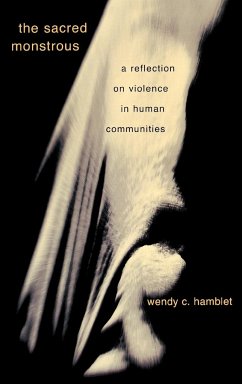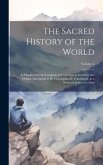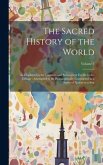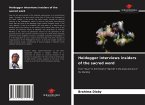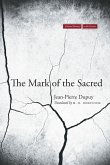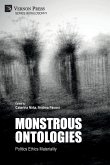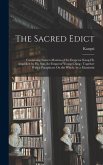In The Sacred Monstrous author Wendy Hamblet traces the historical and social fact of violence through the work of Girard, Bloch, Lorenz and Burket. She takes up the charge advanced by social theorists, anthropologists and others that violence is steeped in our being; it pervades our generations and is imbedded in the ethos of our modern institutions. Hamblet's discussion of human history re-frames our understanding of how violence works in history and society. The Sacred Monstrous is a salient work of continentally informed philosophy that contributes significantly to any discussion of violence and conflict in the social sciences.
Hinweis: Dieser Artikel kann nur an eine deutsche Lieferadresse ausgeliefert werden.
Hinweis: Dieser Artikel kann nur an eine deutsche Lieferadresse ausgeliefert werden.
Although Professor Hamblet is not directly concerned with contemporary events in her interesting study, her phenomenology of violence surely suggests to the reader a deeper and quite disturbing framework for interpreting the impact of 9/11 on American life. -- David Gauthier, Emeritus Distinguished Service Professor of Philosophy, University of Pittsburgh Professor Hamblet has written an important text, well worth the investment of serious thought and reflection. Not only has she addressed the ongoing nature of violence in the human community, but she has done so through a careful analysis of the work done by anthropolgists, religionists, and philosophers. In entering into these conversations, and making us acquainted with her own orientation, we are privileged to observe a philosopher at work addressing one of the most-if not the most-vitally important problems of our age. -- Steven Leonard Jacobs, Aaron Aronov Chair of Judaic Studies, University of Alabama This book will make a significant contribution to many fields. I would definitely quote it in anything I may write about violence and refugees. And while some ideas and examples may be controversial for some readers, the book should spark many debates. -- Elzbieta M. Gozdziak, Director of Research, Institute for the Study of International Migration (ISIM), Georgetown University A troubling reflection on the deepseated violence of our times. -- James Sterba, University of Notre Dame, Past President, Concerned Philosophers for Peace

